One of my last posts about the Design Interactions work in progress show in London. People who checked my images of the show are writing to complain that they are frustrated to see intriguing images without any explanation. So here you are, my friends, three projects that investigate ideas and ideals of love and commitment:
With Love, Only Better, Thomas Wynne Morgan looked at the way commitment is affected by chemical and hormonal balances in the body, but also by changes in society.
The nature of male and female is changing, roles are changing, behaviors are changing and in this fluid and complicated society how and by what means will we adapt? How might emerging technologies be appropriated to elicit subtle forms of control and how might these changes affect out current societal norms?
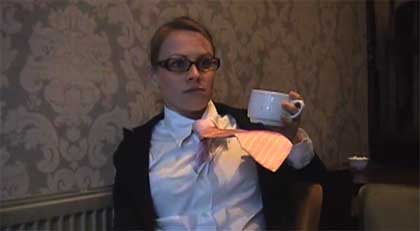
He was showing two ties, one for each person in the couple. Sensors in the pants of the wearer would make the tie raise whenever attraction to another person is detected.
Ivo Vos is fascinated by the personality of Eric Wilson. Wilson has a business called "The Love Locker, Inc.," which is operated out of his garage. He also works part-time for the local police force.
Eric crafts and sells sex machines. He believes that these machines saved his marriage. His wife had fantasies of making love with two guys so he built her a machine that would do the trick and bring sparks back to their marriage. More about Wilson in this PDF excerpt from Timothy Archibald's book Sex Machines: Photographs and Interviews.
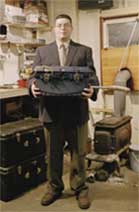
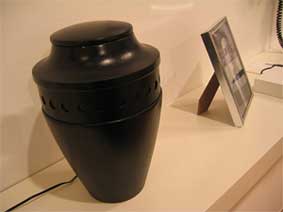
After creating the Love Machine to deal with his sexual problems, Vos imagined that Eric would build the Immortality Machine to secure his after-life concerns. His heart still ticks in his urn, getting aroused when his wife Jenny is close-by. The urn provides Eric with a sense of control and trust in the faithfulness of his wife.
Vos translated Eric's handyman-approach to his psychological issues to a meta-physical product. The urn focuses on his belief in an after-life. Is there a place on the market for products products or services that support or invite us to reflect on metaphysical beliefs? Or should the market keep on focusing only on the immediate needs of the consumer?
The third project is entitled Wish You Were A Bit More Like Me and is inspired by the Cellular memory theory, which claims that an organ donor's personality, taste and history can be passed on during transplant surgery. Revital Cohen tells the story of a world in which medical procedures are used to perform personality enhancement surgery.
In a future where medical advances make an organ transplant operation a routine procedure, a transplant wedding would allow a couple to swap their hearts (instead of the traditional ring) and install a fragment of their personality into their partner. Fashion designers would sell special surgery wedding gowns and the wedding ceremony itself would take place in an operating theatre.
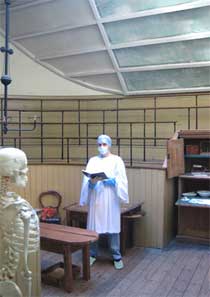
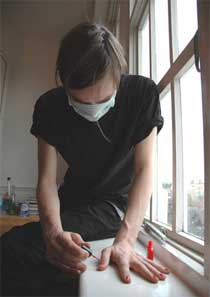
As a result, the newlyweds will be able to share their passions, phobias and traumas as well as experience flashbacks of each other's dreams and memories.
Originally posted on we make money not art by Rhizome



